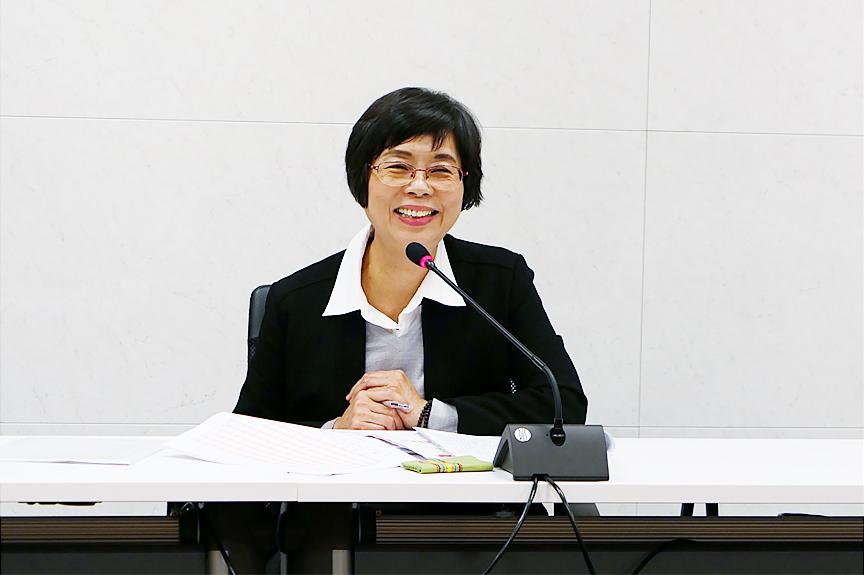A recovery in business activity, and vibrant securities and property transactions have led to a 10.3 percent year-on-year increase in tax revenue, the Ministry of Finance said yesterday, adding that revenue totaled NT$231.7 billion (US$8.13 billion) last month.
Business tax revenue rose 9.1 percent year-on-year to NT$86 billion, aided by a pickup in manufacturing and retail sales, Department of Statistics Deputy Director-General Chen Yu-feng (陳玉豐) said, adding that an increase in imports of electrical and machinery equipment also lent support.
Corporate income tax revenue rose 6 percent to NT$4.2 billion, while personal income tax bounced 16.3 percent to NT$20 billion, as Taiwan increasingly cast off the negative effects of the COVID-19 pandemic, the ministry said.

Photo: CNA
Securities transaction tax revenue surged 55.5 percent to NT$13.8 billion, after daily turnover swelled by 77.3 percent on the Taiwan Stock Exchange and 62.5 percent on the Taipei Exchange, the ministry’s monthly report showed.
The local markets have seen rapid inflows of funds from home and abroad as global central banks cut interest rates to nearly zero or below zero, driving investors to pursue better returns elsewhere
Taiwan emerges as an attractive destination owing to its resilient economy and competitive technology firms.
Land value increment tax revenue rose 27 percent to NT$11.1 billion, the highest since the introduction of combined property taxes in 2016, following a 21.7 percent uptick in taxable cases to 57,567, Chen said.
Property transactions last month showed evident gains in Taipei, New Taipei City, Taoyuan, Hsinchu, Tainan and Kaohsiung, Chen said.
Increased transactions have pushed up home prices nationwide, prompting the central bank to tighten credit controls by on Monday capping the loan-to-value ratios at 50 to 60 percent.
Previously, it was common for local banks to grant lending at 80 percent of property values.
For the first 11 months, the ministry collected NT$2.24 trillion in tax revenue, representing a 3.8 percent decline from the same period last year, slightly behind its budget target.
Chen said that the full-year volume might disappoint, due to profitability retreats among local firms, and a tax cut from 10 percent to 5 percent on retained earnings.

UNCERTAINTY: Innolux activated a stringent supply chain management mechanism, as it did during the COVID-19 pandemic, to ensure optimal inventory levels for customers Flat-panel display makers AUO Corp (友達) and Innolux Corp (群創) yesterday said that about 12 to 20 percent of their display business is at risk of potential US tariffs and that they would relocate production or shipment destinations to mitigate the levies’ effects. US tariffs would have a direct impact of US$200 million on AUO’s revenue, company chairman Paul Peng (彭雙浪) told reporters on the sidelines of the Touch Taiwan trade show in Taipei yesterday. That would make up about 12 percent of the company’s overall revenue. To cope with the tariff uncertainty, AUO plans to allocate its production to manufacturing facilities in

Taiwan will prioritize the development of silicon photonics by taking advantage of its strength in the semiconductor industry to build another shield to protect the local economy, National Development Council (NDC) Minister Paul Liu (劉鏡清) said yesterday. Speaking at a meeting of the legislature’s Economics Committee, Liu said Taiwan already has the artificial intelligence (AI) industry as a shield, after the semiconductor industry, to safeguard the country, and is looking at new unique fields to build more economic shields. While Taiwan will further strengthen its existing shields, over the longer term, the country is determined to focus on such potential segments as

TAKING STOCK: A Taiwanese cookware firm in Vietnam urged customers to assess inventory or place orders early so shipments can reach the US while tariffs are paused Taiwanese businesses in Vietnam are exploring alternatives after the White House imposed a 46 percent import duty on Vietnamese goods, following US President Donald Trump’s announcement of “reciprocal” tariffs on the US’ trading partners. Lo Shih-liang (羅世良), chairman of Brico Industry Co (裕茂工業), a Taiwanese company that manufactures cast iron cookware and stove components in Vietnam, said that more than 40 percent of his business was tied to the US market, describing the constant US policy shifts as an emotional roller coaster. “I work during the day and stay up all night watching the news. I’ve been following US news until 3am

COLLABORATION: Given Taiwan’s key position in global supply chains, the US firm is discussing strategies with local partners and clients to deal with global uncertainties Advanced Micro Devices Inc (AMD) yesterday said it is meeting with local ecosystem partners, including Taiwan Semiconductor Manufacturing Co (TSMC, 台積電), to discuss strategies, including long-term manufacturing, to navigate uncertainties such as US tariffs, as Taiwan occupies an important position in global supply chains. AMD chief executive officer Lisa Su (蘇姿丰) told reporters that Taiwan is an important part of the chip designer’s ecosystem and she is discussing with partners and customers in Taiwan to forge strong collaborations on different areas during this critical period. AMD has just become the first artificial-intelligence (AI) server chip customer of TSMC to utilize its advanced